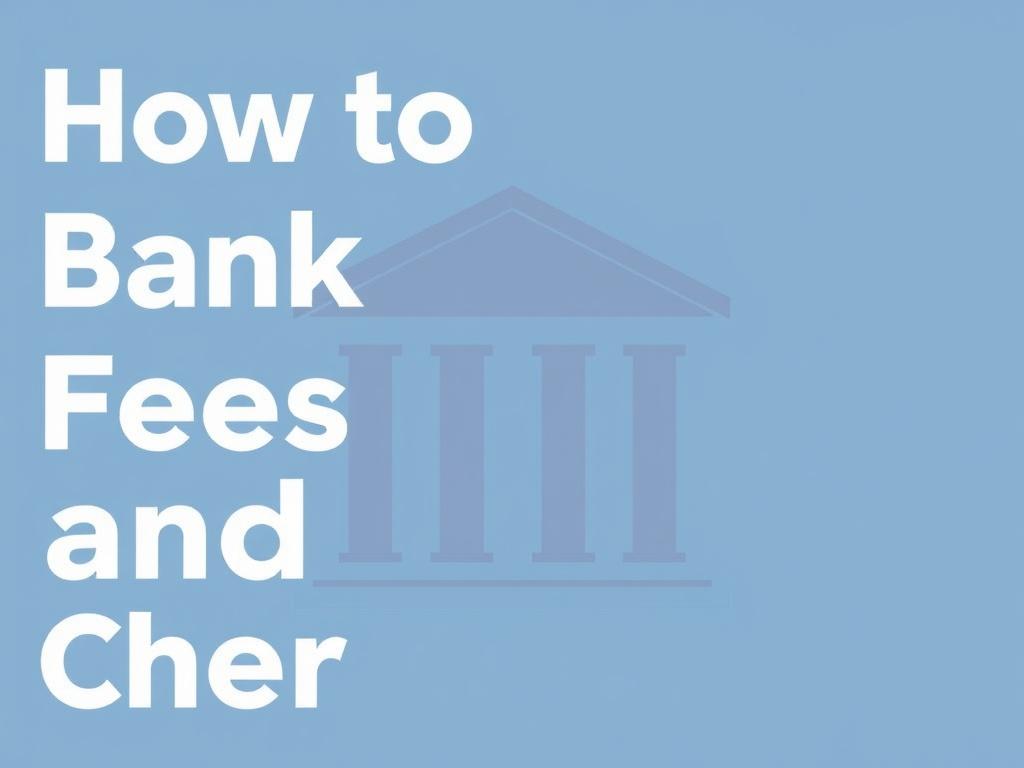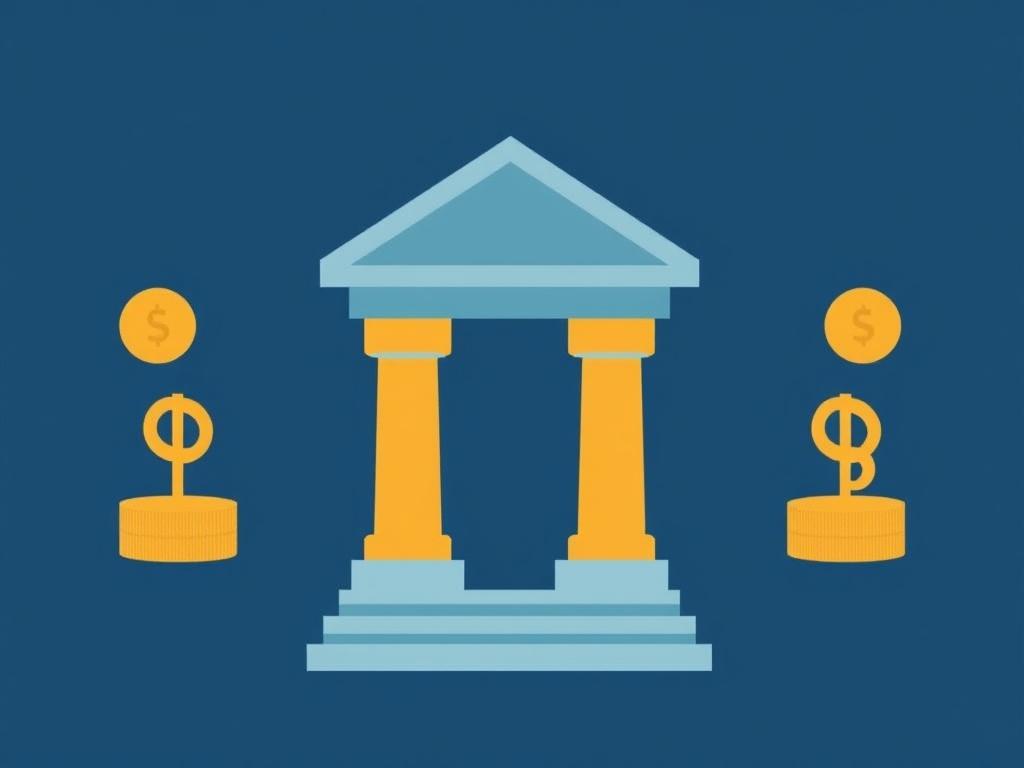SQLITE NOT INSTALLED
Содержание
Understanding Bank Fees and Charges
When it comes to managing your money, one of the most frustrating experiences can be dealing with unexpected bank fees and charges. These fees can chip away at your hard-earned cash, sometimes without you even realizing it. To avoid bank fees and charges, it’s essential to first understand what these fees are and why banks charge them. Banks often impose fees as a way to cover the costs associated with maintaining accounts, processing transactions, or managing overdrafts. Common fees include monthly maintenance fees, ATM withdrawal charges, overdraft fees, and foreign transaction fees. Some fees might seem small at first, but they can add up quickly if you’re not careful.
Common Types of Bank Fees and How to Spot Them
One of the keys to avoiding bank fees and charges is knowing what types of fees are typically applied. Here’s a quick run-down of the most common fees you might encounter:
- Monthly Maintenance Fees: A recurring fee charged just for having an account open.
- ATM Fees: Charges applied when you use an ATM outside your bank’s network.
- Overdraft Fees: Fees incurred when you spend more money than you have in your account.
- Foreign Transaction Fees: Expenses for making purchases or withdrawals abroad.
- Paper Statement Fees: Some banks charge for sending paper statements instead of electronic ones.
- Excess Transaction Fees: Charges for exceeding a set number of transactions on certain types of accounts.
Understanding these fees will help you recognize when you might be vulnerable to additional costs and empower you to take proactive steps to avoid them.
Practical Tips to Avoid Monthly Maintenance Fees
Monthly maintenance fees can feel like a penalty simply for keeping your money in a bank. Fortunately, many banks offer ways to waive these fees if certain conditions are met. Here are some practical strategies to avoid monthly maintenance fees:
- Maintain a Minimum Balance: Many banks require you to keep a certain amount of money in your account to waive the fee.
- Sign Up for Direct Deposit: Having your paycheck or other regular deposits automatically deposited can often waive the fee.
- Choose No-Fee Accounts: Look around for banks or credit unions that offer accounts with no monthly maintenance fees.
- Use Student or Senior Accounts: Some banks offer special accounts that waive fees for students or seniors.
Before you open an account, read the fine print carefully and consider how you plan to use the account to avoid unnecessary fees.
Smart Strategies to Dodge ATM Fees
ATM fees can sneak up on you, especially when you need cash in a hurry and use an out-of-network ATM. Here’s how you can avoid or reduce ATM fees:
- Use Your Bank’s ATMs: The simplest way to avoid ATM fees is to stick to machines owned by your bank.
- Look for Fee-Free Partnerships: Some banks participate in extensive ATM networks or partnerships that allow fee-free withdrawals at hundreds or thousands of locations.
- Withdraw More Cash Less Often: Paying one fee for a larger withdrawal can be cheaper than several fees for multiple small withdrawals.
- Consider Cash Back Options: Many stores offer cash back when you make a purchase with your debit card, avoiding ATM fees altogether.
Always check your bank’s ATM network map online or in your banking app so you know where you can withdraw cash without fees.
How to Prevent Overdraft Fees
Overdraft fees are among the highest and most painful bank fees. They happen when you spend more money than is actually in your account. Here are some tips to prevent this:
- Keep a Close Eye on Your Account Balance: Regularly check your balance online or via your bank’s mobile app to avoid surprises.
- Set Up Alerts: Many banks offer free alerts via text or email when your balance drops below a certain threshold.
- Link a Savings Account: Some banks allow you to link your checking account to a savings account to cover overdrafts automatically, often for a lower fee.
- Use Overdraft Protection Wisely: Understand the terms and fees associated with overdraft protection services — sometimes you’re better off declining overdraft protection.
- Budget Carefully: Plan your spending and track recurring payments to stay within your means.
Being proactive and vigilant about your account balance can save you hundreds of dollars per year in overdraft fees.
Minimizing Foreign Transaction Fees

If you travel abroad or shop internationally online, foreign transaction fees can quickly eat into your budget. Banks typically charge a percentage of the transaction amount for foreign purchases or ATM withdrawals made outside your home country. Here’s how to avoid these fees:
- Choose a No-Foreign-Transaction-Fee Card: Some credit and debit cards specifically waive foreign transaction fees.
- Use Credit Cards Over Debit Cards Overseas: Credit cards often provide better exchange rates and may not charge foreign fees.
- Avoid ATM Withdrawals Abroad: Instead of withdrawing cash, use cash back or pay with your card whenever possible.
- Notify Your Bank Before Traveling: This reduces the risk of your card being frozen due to suspected fraud and saves you from emergency replacement fees.
Planning ahead can help you avoid the sneaky costs of using your bank card abroad.
The Power of Direct Deposit and Electronic Statements
Two powerful tools for avoiding bank fees and charges are direct deposit and opting for electronic statements. Direct deposit often helps you qualify for fee waivers and even provides faster access to funds. Electronic statements save banks money on mailing costs, and many banks reward customers by waiving paper statement fees.
Advantages of Direct Deposit
- Automatic monthly fee waivers
- Quicker access to paychecks and government benefits
- Reduction in missed payments as deposits are guaranteed on payday
Benefits of E-Statements
- Environmentally friendly and clutter-free
- Helps avoid paper statement fees
- Easier record keeping and faster access to statements
Making these small changes in how you manage your account details can make a big difference in cutting down those pesky fees.
Choosing the Right Bank Account: A Comparison Table
Finding an account that fits your banking style can drastically reduce fees. Here’s a quick comparison of three types of accounts you may encounter:
| Account Type | Monthly Maintenance Fee | Minimum Balance Requirement | ATM Fee | Overdraft Protection |
|---|---|---|---|---|
| Basic Checking Account | $10 – $15 | $500 – $1,000 | Yes, for out-of-network ATMs | Optional, usually with fees |
| Student Checking Account | Often $0 or waived | None or very low | Limited or no fees | Limited overdraft protection |
| Credit Union Account | Typically low or no fees | Low minimum balance | Usually free within network | Flexible overdraft options |
Evaluating what’s most important to you—low fees, low balance requirements, or overdraft protection—can help you select the best bank account and avoid unnecessary charges.
Additional Strategies and Helpful Tricks
To further help you avoid bank fees and charges, here are some extra tips that people often overlook:
- Close Unused Accounts: Banks sometimes charge fees on dormant accounts, so close any accounts you no longer use.
- Avoid Frequent Transfers: Savings accounts sometimes limit the number of transactions you can make per month; exceeding these can result in fees.
- Use Alerts and Budgeting Apps: Apps that connect to your bank account can help you stay on top of fees and balances.
- Negotiate with Your Bank: Some banks are willing to waive fees if you ask, especially if you’re a long-time customer or open new accounts.
- Compare Fees Annually: Bank fees can change, so it pays to periodically review your bank’s fee schedule.
Being proactive and informed is your best defense against losing money to bank fees.
How Technology Helps You Avoid Bank Fees

In today’s digital age, technology is your friend in avoiding bank fees and charges. Most banks offer mobile apps that give you real-time access to your accounts, alert notifications, and budgeting tools. Here’s how technology can help:
- Real-Time Notifications: Instantly know when big transactions occur or if your balance drops low.
- Automatic Transfers: Schedule regular transfers to savings or checking to maintain minimum balances.
- Fee Reminders: Some apps warn you about upcoming fees or changes to fee structures.
- Comparison Tools: Easily compare multiple banking options online to find accounts with best fee structures.
Leveraging these tools can save you time, stress, and money.
The Importance of Reading the Fine Print
Many bank fees and charges are buried deep in the fine print of account agreements. Avoiding hidden fees requires you to carefully read and understand your bank’s terms and conditions. When you open a new account, take the time to:
- Review the fee schedule thoroughly
- Ask questions if you don’t understand a fee
- Check for monthly fees, transaction limits, ATM policies, and overdraft terms
- Keep updated about any changes; banks are required to notify you about fee changes, but these notices are often overlooked
Doing your homework is one of the best ways to prevent surprises on your bank statement.
Leveraging Credit Unions to Avoid Fees

Credit unions are member-owned financial institutions that often have lower fees or no fees at all. Many people don’t realize how significantly credit unions differ from traditional banks when it comes to fees. Here’s why credit unions might be the better choice if you want to avoid bank fees and charges:
- Lower or No Account Fees: Most credit unions offer free checking and savings accounts.
- Reduced Overdraft Fees: Credit unions tend to be more forgiving with overdraft penalties.
- Better ATM Access: Credit unions often share a network of ATMs that can be used free of charge.
- More Personalized Service: Because credit unions are community-focused, they can work with you to avoid fees.
If you’re tired of bank fees, consider switching to a credit union for a fee-friendly banking experience.
How to Avoid Fees When Using Online Banks
Online banks are growing rapidly and often advertise no-fee accounts. However, there are still some fees lurking that you should be aware of:
- Beware of Wire Transfer Fees: Some online banks charge for incoming or outgoing wire transfers.
- Check ATM Access: Since online banks don’t have physical branches, make sure you understand ATM fee policies.
- Minimum Balance Requirements: Although rare, some online banks still have requirements that prevent fee waivers.
- Foreign Transaction Fees: Even online banks may charge fees for international transactions.
Read all terms carefully, and compare online bank offerings to make sure they truly save you money.
Building Financial Habits to Avoid Bank Fees and Charges
Ultimately, avoiding fees isn’t just about picking the right account or bank—it also comes down to good financial habits. Here are some habits that will help you keep your money where it belongs:
- Regularly Check Your Statements: Review your transactions monthly or weekly to spot errors or unexpected fees.
- Keep Track of Your Spending: Use budgeting tools or apps to understand where your money goes.
- Plan Bill Payments: Schedule payments ahead of due dates to avoid late fees or overdrafts.
- Live Within Your Means: Avoid overdrafts by spending only what you have.
- Stay Informed: Pay attention to emails or letters from your bank about fee changes.
Consistency in these habits will help you avoid bank fees and maintain better control of your finances.
Negotiating Fees: When and How to Ask for a Waiver
Believe it or not, many people don’t realize that banks are sometimes willing to waive fees if you simply ask, especially if it’s a one-time charge or you’re a loyal customer. Here’s a step-by-step guide:
- Review Your Account History: Have a good understanding of your relationship with the bank.
- Identify Fees You Want Waived: Overdraft fees, late fees, or transfer fees are common negotiable charges.
- Contact Customer Service: Be polite and explain your situation clearly, mentioning if it’s your first time or you’ve otherwise been a reliable customer.
- Ask for a One-Time Waiver: Most banks have the authority to waive fees once or twice.
- Consider Switching Banks: If fee structures are unreasonable, mention this during your negotiation—it sometimes motivates banks to make concessions.
The worst they can say is no, but the best might be saving you hundreds annually in fees.
Summary: What You Can Do Right Now
To quickly put these ideas into action, here are things you can start doing today to avoid bank fees and charges:
- Check your current account’s fee schedule online.
- Set up balance alerts through your bank’s app.
- Switch to electronic statements if you’re still receiving paper ones.
- Use ATMs within your bank’s network or seek out cash back options.
- Explore credit union accounts in your area.
- Review and adjust your budgeting habits to prevent overdrafts.
- Call your bank and ask about waiving any recent fees.
Taking these steps can immediately reduce the amount you lose to fees and give you a better understanding of your banking relationship.
Conclusion
Bank fees and charges may seem inevitable, but with a little knowledge and effort, you can avoid many of them and keep more of your hard-earned money. Understanding the different types of fees, choosing the right account, adopting smart financial habits, and using technology wisely all play vital roles in protecting your finances. Whether it’s avoiding monthly maintenance fees through direct deposit, carefully managing your balance to skip overdraft charges, using in-network ATMs to dodge withdrawal fees, or negotiating with your bank to waive charges, there are plenty of ways to keep your money safe. Especially in today’s world where banking options abound—from traditional banks to credit unions and online banks—it’s easier than ever to find a no-fee or low-fee option that suits your lifestyle. So take control, stay informed, and make avoiding bank fees and charges a priority—it’s a simple step towards better money management and greater financial peace of mind.
Опубликовано: 22 July 2025 Кредитрон – блог о кредитах, финансах и прочих реверансах
Кредитрон – блог о кредитах, финансах и прочих реверансах

